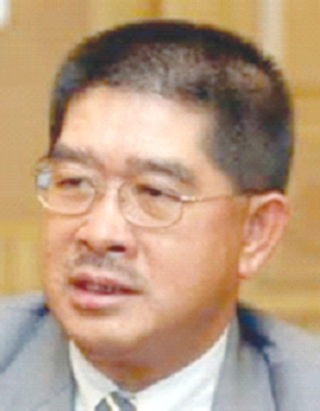Consultation, not confrontation
Published on: Friday, November 17, 2017

Kota Kinabalu: Any review of the Malaysia Agreement 1963 (MA63) over perceived breach of rights needs to be done through consultation because some may have become a permanent part of the law. "If we don't have the majority in parliament to change, if we don't have the majority in the state, then you cannot do anything at all," said Parti Bersatu Sabah (PBS) Acting President Datuk Seri Dr Maximus Ongkili. "Sabah alone cannot do this, she needs to pair with Sarawak through the process of consultation to give and take. I think that's the only proper way…. Confrontational approach will not gain anything, the more the Federal will close the door.
ADVERTISEMENT
"Where breaches have taken place, first find ways to rectify, but how to rectify needs to be through consultation," he said, during a PBS media luncheon, Thursday. Nevertheless, he said it was in bad taste for Dewan Speaker Tan Sri Pandikar Amin to refer to PBS on why it did not amend Article 5A to revert it to the pre-1973 status of Sabah having no official religion, when the party was in power. "He (Pandikar) is saying it is easier to talk than to implement, it is not him saying that PBS is useless, he is just saying that it is not so easy. "We are a little bit … to go and pinpoint particular ones, to put us in bad light. He should answer it first as he was the (Assembly) Speaker, a senior leader in the party," he said.
ADVERTISEMENT
Ongkili was asked about Pandikar's remark at a public forum held at Kian Kok School last Sunday, where he said, PBS could have easily used its Assembly majority to table a motion to revert to the original status at the time of MA63."He (Pandikar) is saying it is easier to talk than to implement, when PBS at that time with all the power it was not possible, that's the message he wants to say," said Ongkili.
ADVERTISEMENT
"At that time, provisions of the Constitution was already that Islam shall be the religion of the Federation , so how can you go and do an Act at State level. Otherwise it will be unconstitutional. Tun Mustapha Datu Harun (then Chief Minister) already did the State Enactment that Islam shall be the official religion of the State."So to do otherwise, is suicidal, because it will not be in line with the provision of the Constitution."Sarawak was slightly smarter, they have it as open, but they comply with the provision of the Federal Constitutional that Islam is the religion of the Federation, so religion in Sarawak follow Federal."He (Pandikar) knew it cannot be done, he was the Speaker of the house then, he was PBS guy, he should know but he is stressing that it is easier to say than to do it," he said. "You need to ask him why he need to mention that specific case about religion when there are so many other things that he could pick up. "But I heard he (Pandikar) wanted to emphasise on the Malaysia Agreement 1963 (MA63), do this do that, he said is easier said than done." Maximus said one would have to go to the background, on why was it amended, who amended it at that time, and how do you return it back, the message is so easy , even the fickle minded can understand, unfortunately in bad taste as he said since PBS was in power, why didn't they reverse when they had the chance."The basic point is must understand the history , understand the reason behind whatever amendments negotiated with the Federal Government which is consistent with the Federal Constitution and amend what is necessary."First you need to get the power and the means, you must have the majority of the House to amend, can you amend it? Is it in line with the Federal Constitution?, even though it was amended by our own leaders maybe at that time, not in line with the constitution," he said. "I think for PBS, I just want to say understand the process properly, understand the history, know what ought to be done and how to do it in accordance with what has been provided in the Federal Constitution."Pandikar's message, I think, is about safeguards which we in PBS have also talked about, better understand the background, don't simply when you are in power you go change this and change that."Know your facts and know what should be done, not just shout at the top of our voice, want to do this and do that, because it is easier said than done."Things that need to be corrected should be addressed, but do it in accordance with the law, understand the background of how those changes took place, because at the end of the day we need the support of the numbers." Maximus said in the long term, it is through consultation with the Federal Government agreeing what have been breached and how to correct this breaches that cannot be done by shouting on the streets it has to be through consultation and working together with Sarawak. He said under the current leadership, it was possible to talk about Sabah's rights but it was difficult to do so during the era of former prime minister Dr Mahathir Mohamad."We can talk now under Prime Minister Najib Razak. If it was Mahathir, we would all be put under the ISA (Internal Security Act). In fact, I was actually one of the victims (detained under the ISA) because of this," he said.Stay up-to-date by following Daily Express’s Telegram channel.
Daily Express Malaysia




